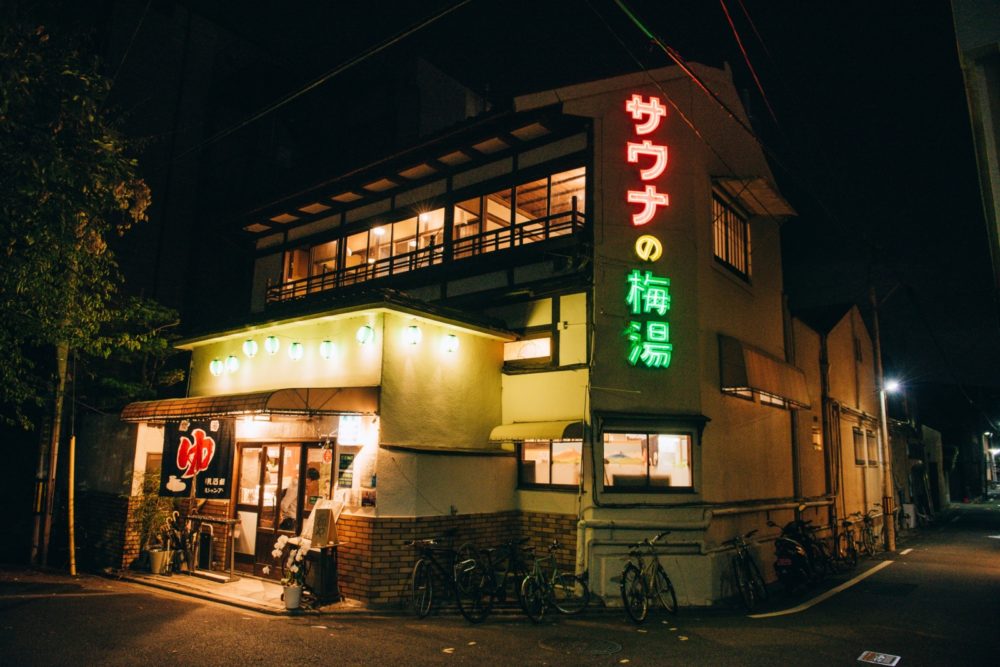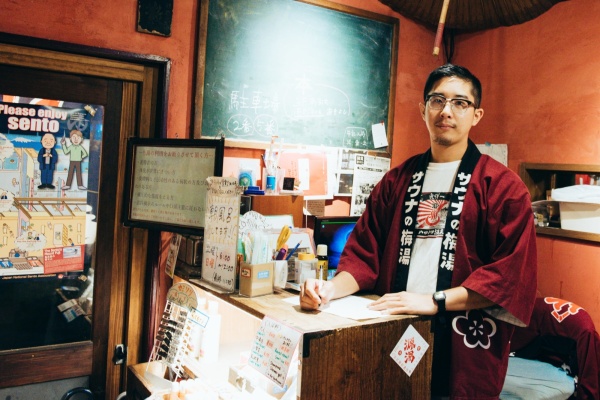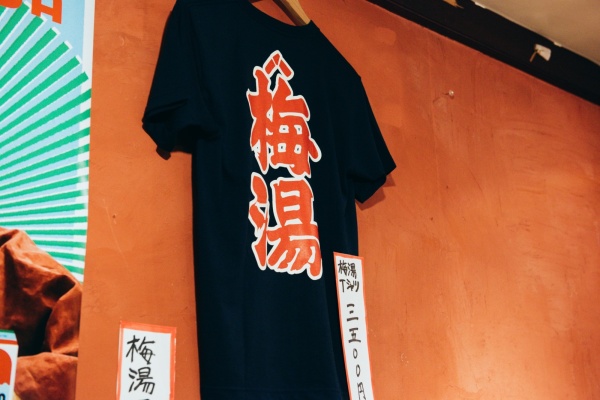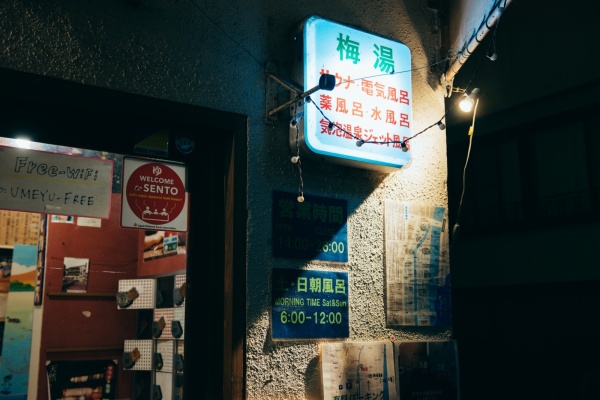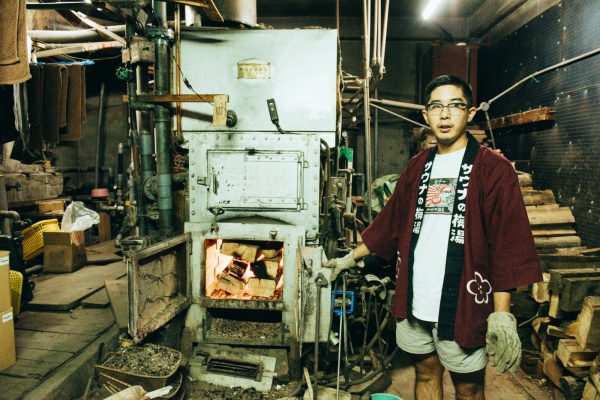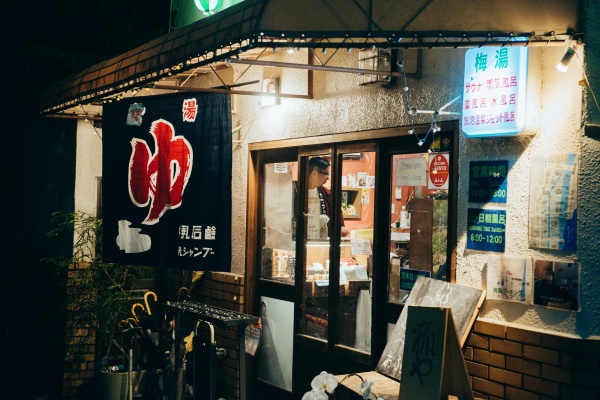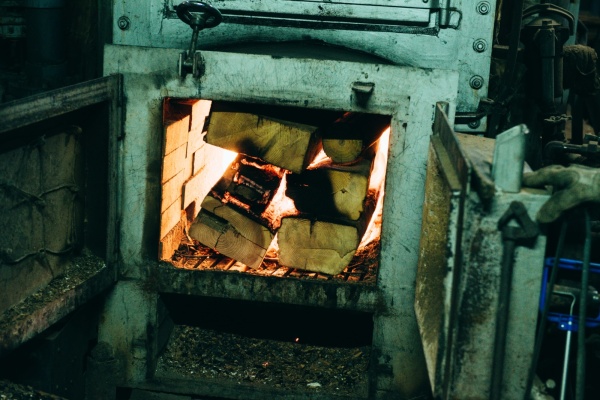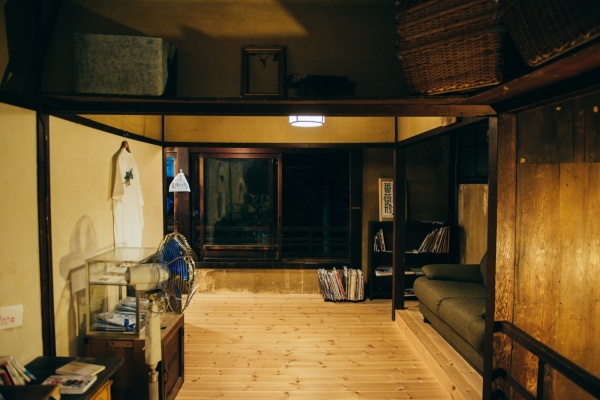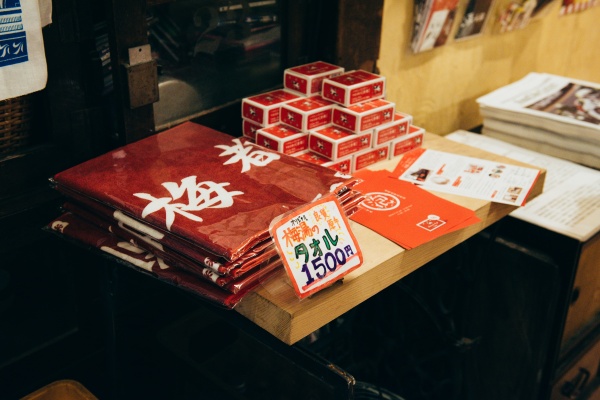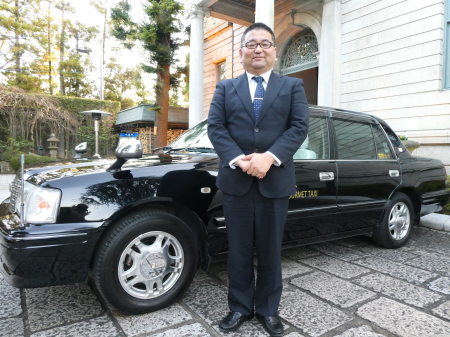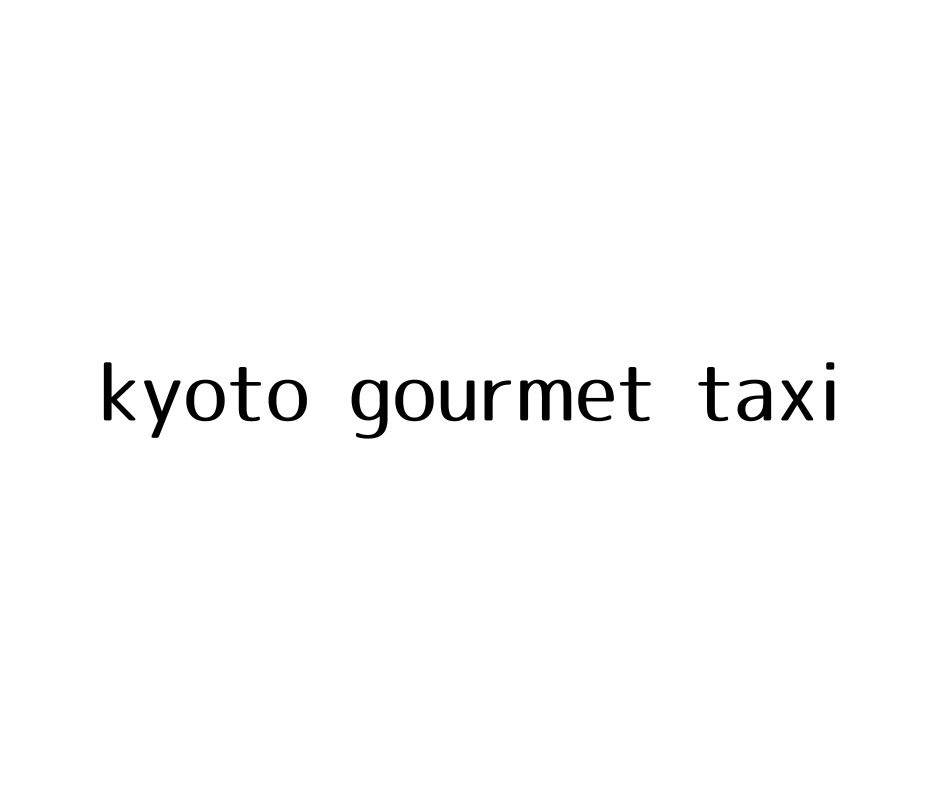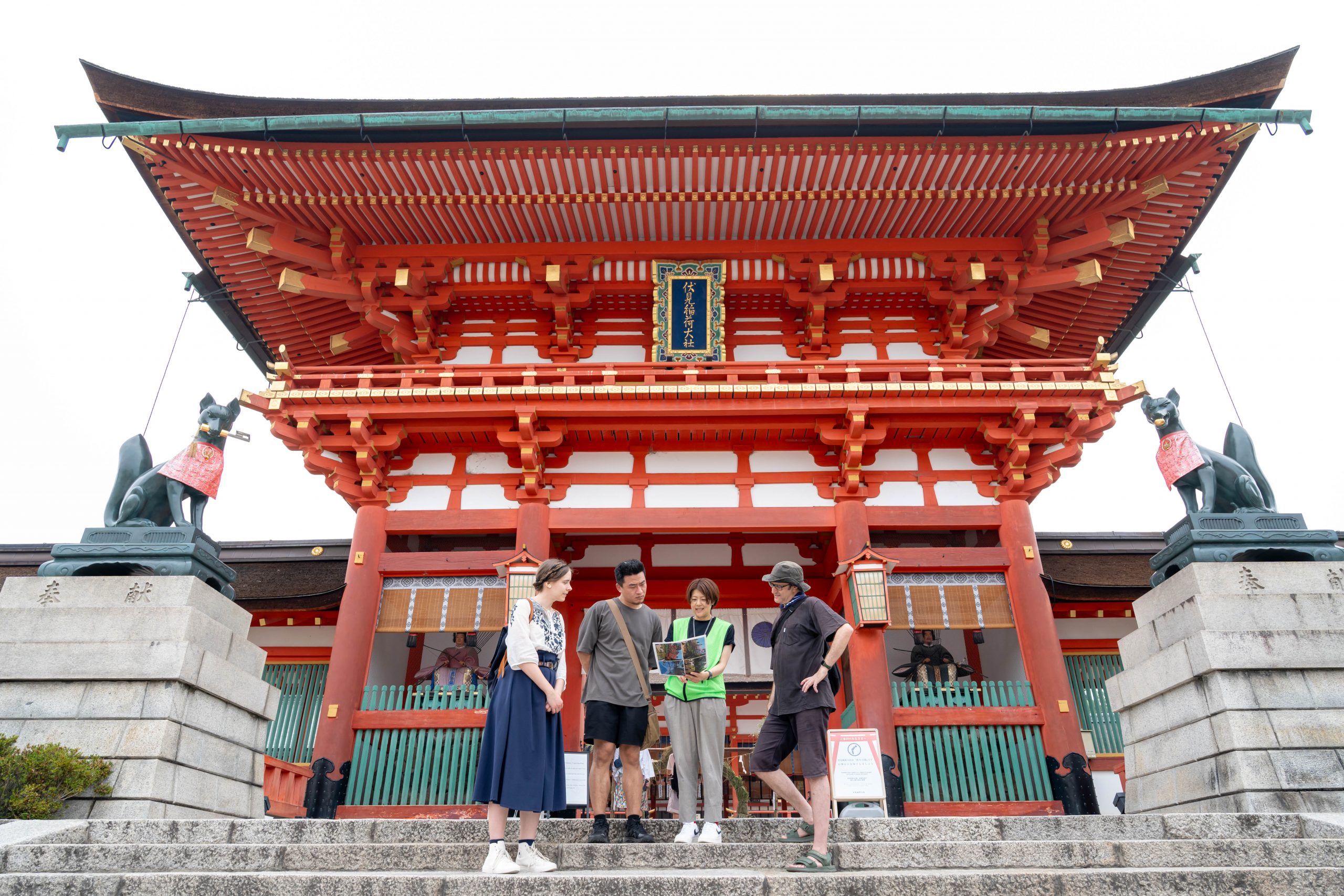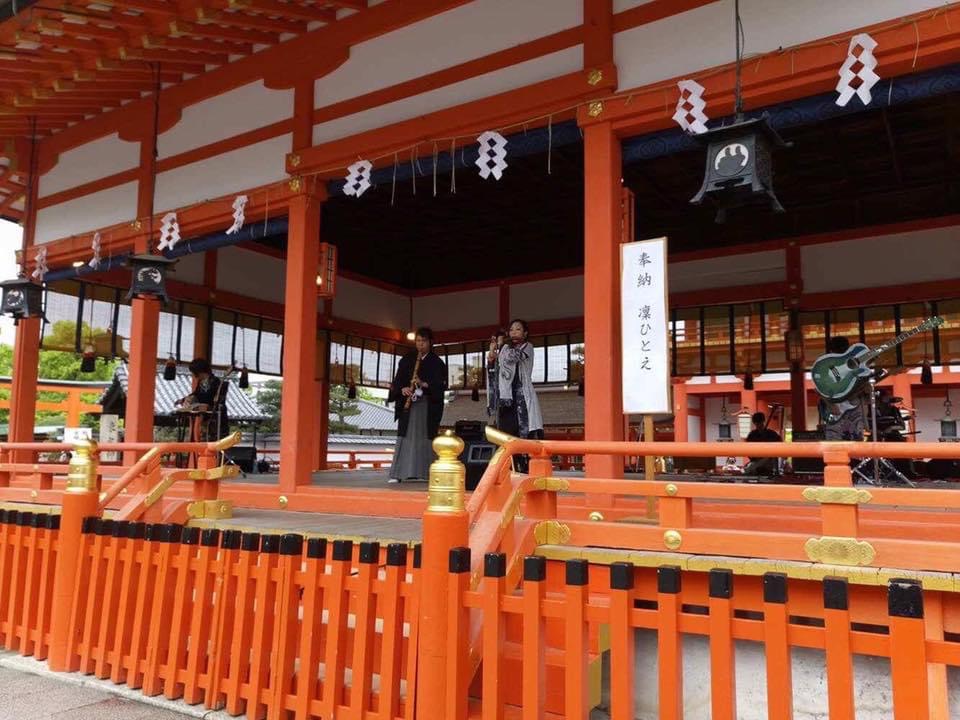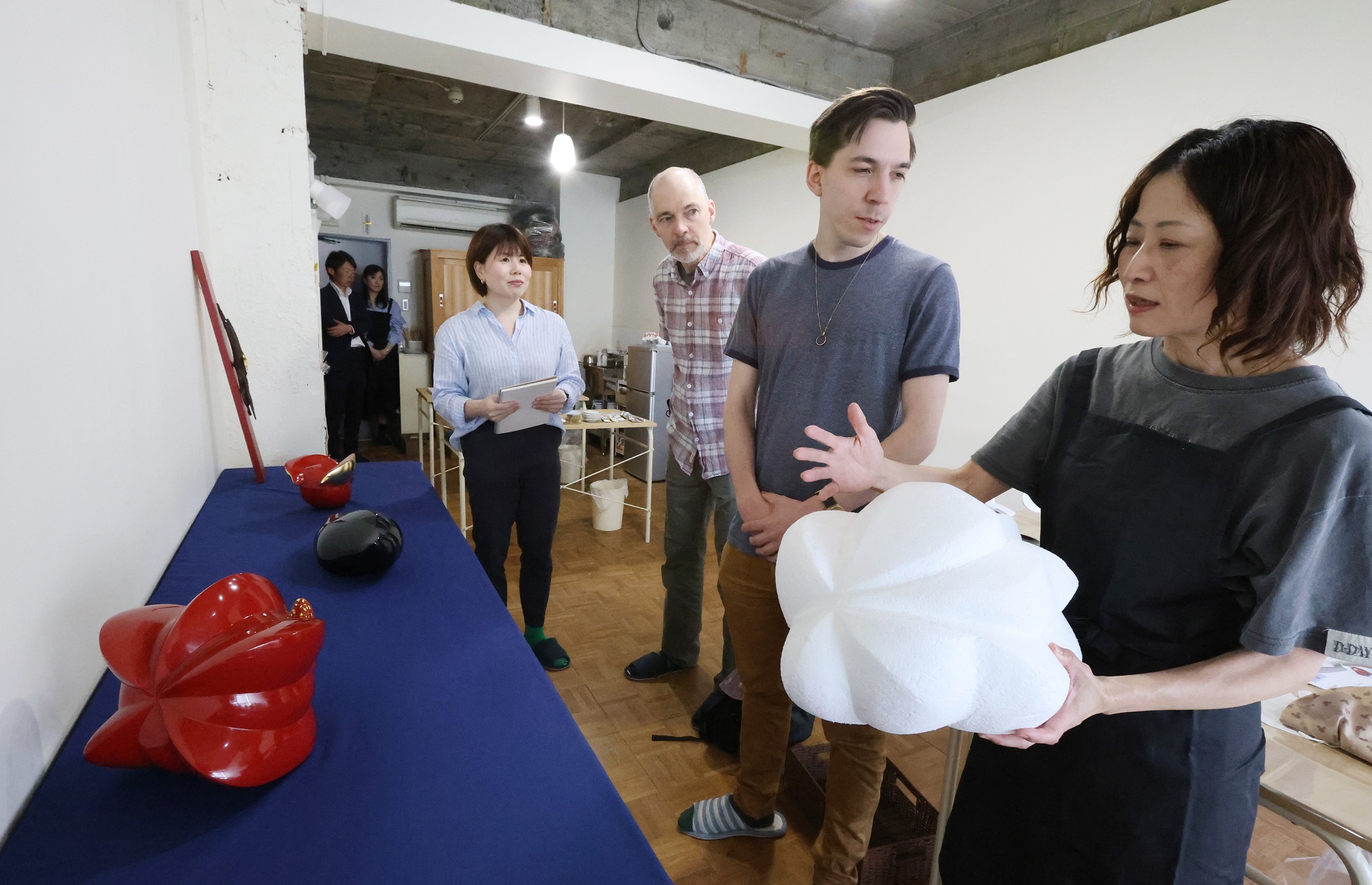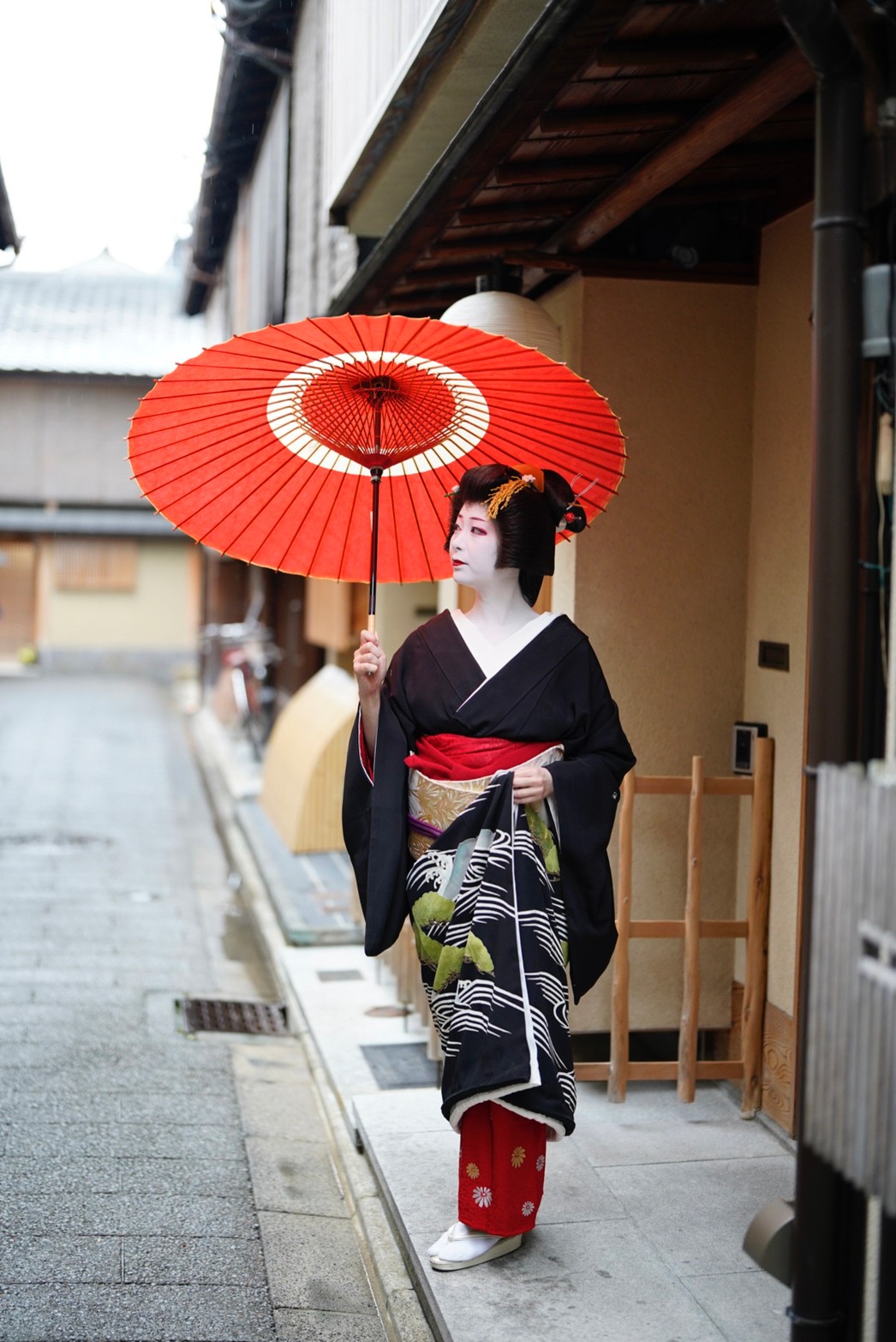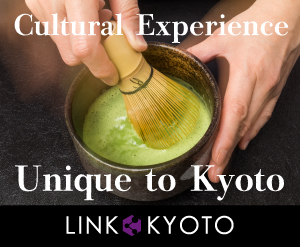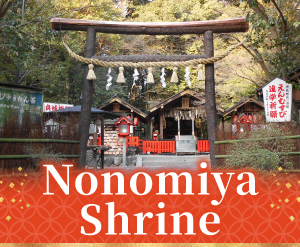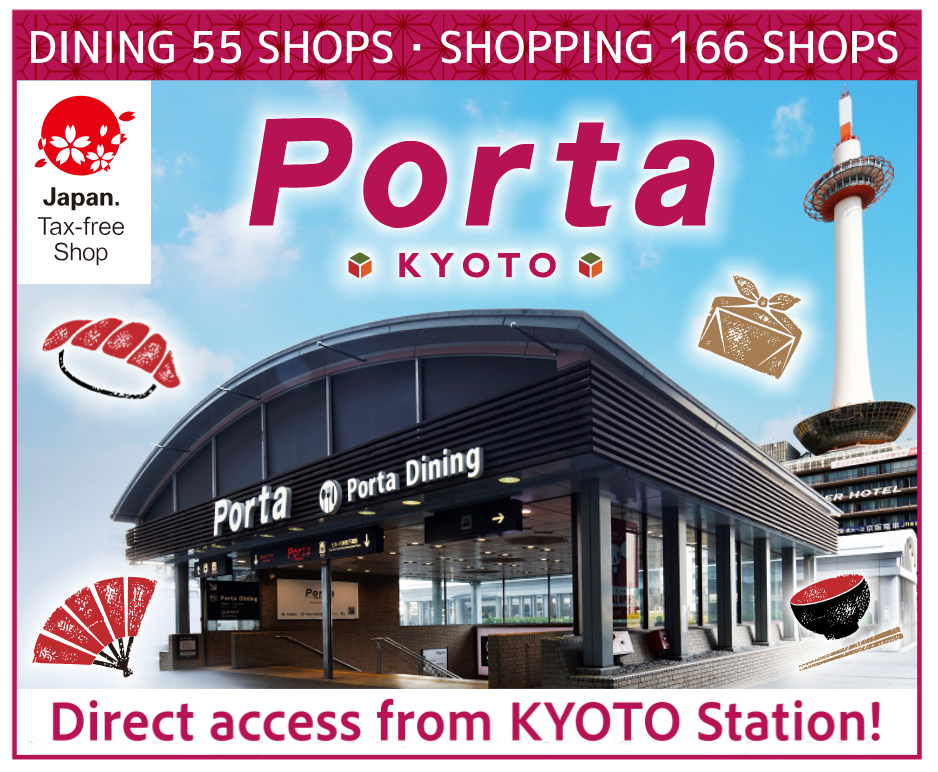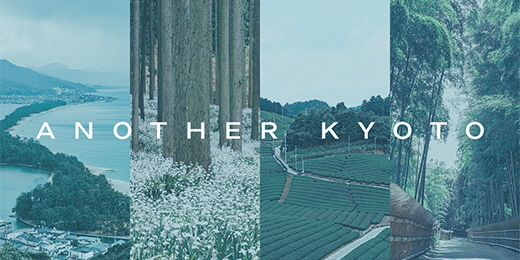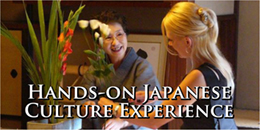Bathhouse culture blossomed simply because it is based in Kyoto
Interviewer:
A friend of mine from Tokyo came to Kyoto recently and told me that a visit to Umeyu was one of the purposes of his trip. Looking at Twitter, I sense that an increasing number of people are coming to Kyoto to visit Umeyu.
Mr. Minato:
It’s a bathhouse with a sauna. I think we were successful in riding the wave of the sauna boom. The fact that Umeyu is located in Kyoto is another big plus. Even if the main purpose of your trip is to visit Umeyu, you are still able to go to all of the famous sightseeing spots that Kyoto has to offer. It would be different if we were located somewhere like Hamamatsu (Mr. Minato’s hometown) in Shizuoka Prefecture, for example, where not many people think to visit. I think the sharp recovery of our business that would not have been possible elsewhere is thank for our location in Kyoto. I believe there is something about Kyoto that allowed bathhouse culture to blossom.
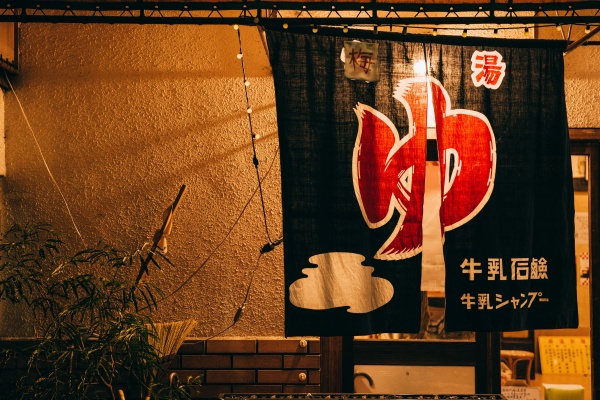
Interviewer:
Do you believe that bathhouse culture was born because of the location in Kyoto?
Mr. Minato:
The spirit of GetYu!, an extension of something that started for fun, is the same kind of spirit that existed in Kyoto’s own Muraya (the cultural phenomenon of the now-closed local izakaya pub in Sakyo-ku). Bustling spots naturally attract more people. I felt this happen for Umeyu.
I opened the bathhouse alone, and on the second day, a customer around the same age as me came in and told me he always wanted to work at a bathhouse. I asked him if he wanted to try cleaning and he started helping me. The next day, he brought his friends, and those friends started coming in regularly from Takatsuki (Takatsuki City in nearby Osaka Prefecture) on scooters. It’s like the kind of fun we would have as kids. In elementary school, kids would see other kids doing something that looks fun, and they would all gather from other classrooms during recess to check it out without planning anything in advance. That kind of spirit exists in Kyoto.
Interviewer:
Kyoto does have that kind of spirit. I heard that you are planning to open a second location. Can you tell us where you’re going to take on the next challenge?
Mr. Minato:
It’s a bathhouse called Miyako Yu in Zeze, Shiga Prefecture. They suspended business after the owner passed away two years ago. I approached them and they let me take over.
Interviewer:
Why did you choose that location?
Mr. Minato:
Right now, I’m running Umeyu, but I was never particular about Umeyu specifically. In order to keep bathhouses alive, I wanted to set a precedent to restore bathhouses that were going out of business. I used to work in the attendant’s booth at bathhouses when I was a student. It all came to me when I heard that Umeyu was going out of business. I had no relevant knowledge, and Umeyu wasn’t equipped with the latest installations, so I knew that if I was able to clear this hurdle, I would be left with an unrivaled business model for operating bathhouses. I ended up having a very difficult experience, but then young people started to frequent the place, our numbers went from red to black, I learned about how to fix the facilities by myself, and the atmosphere got better.
But applying the Umeyu model in other regions would be more difficult because our success was due in part to the Kyoto factor I mentioned earlier, as well as my status as “Umeyu’s Mr. Minato.” That’s why I decided to open the second location in a more rural area. I wanted to build a simple bathhouse in the middle of nowhere. This time, I want to create a model to protect bathhouses in rural areas, and Miyako Yu is the ideal location to do so.
Interviewer:
So, your current business model is only possible because of Umeyu’s location in Kyoto. Therefore, you want to create a new model in a rural area where there aren’t as many artists or tourists.
Mr. Minato:
I want to use the know-how I’ve cultivated so far to learn how far I can take this business, and what potential is in store for rural bathhouses. The fact that we can hold live music shows and events at Umeyu is thanks to the fact that Kyoto is a city of music-lovers. I don’t know what the people of Zeze are like yet, so I have to keep searching for ways to run the business.
No one else is doing it. That’s what I love about operating bathhouses
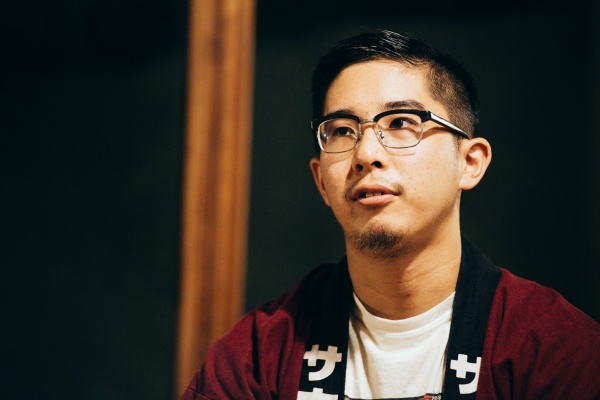
Interviewer:
I suppose there’s a trend of rural bathhouses like Miyako Yu going out of business, after all.
Mr. Minato:
Even in Kyoto, the number of bathhouses is decreasing at a rate of six per year. Right now, there are 112. I don’t think it’s possible to maintain this number. In a decade, I think that number will be down to 50.
Interviewer:
Six a year!? That’s a lot of places going out of business.
Mr. Minato:
That’s been the trend for about the last five years. A simple calculation puts the number at 60 in 10 years, but without people to inherit these businesses, I believe more will go out of business. In five or six years, I think the number of bathhouses will start decreasing at an even faster rate. Before it comes to that, I want people like me to learn to specialize in taking over old bathhouses so that multiple locations can thrive. I don’t think much of it as a business, but it’s an opportunity. It’s a complete monopoly, and I believe that bathhouses will continue to thrive. It’s all up to how you operate.
Interviewer:
Will you take over a bathhouse in Shizuoka someday?
Mr. Minato:
If there’s an opportunity, yes, I would love to take it. I would take that opportunity even if it came tomorrow. But I have to create a system first.
Interviewer:
If you want to get involved before rural bathhouses disappear, it seems now would be the time. In other interviews, you’ve talked about how hard it is to operate a bathhouse, but what aspects of your job give you motivation or fascinate you?
Mr. Minato:
It’s the fact that no one else is doing it. I think I enjoy doing what nobody else is doing, and I take a delight in solving difficult problems..
Interviewer:
Have you always been that way?
Mr. Minato:
During my childhood, or at least during my university years, I was an overthinker. That’s probably where I went off the rails. (Laughs) I think if other people were doing the same thing, I would start to lose interest in the bathhouse business.
Interviewer:
But now, your business is bathhouses, and not anything else.
Mr. Minato:
Nothing speaks to me the way bathhouses do right now, so I’m sticking to them for now. Plus, I’ve come all this way, and I want to keep pushing to see how far I can take it.
My concept as a student had to do with bathhouses as a type of fashion. I made that a reality.
Interviewer:
In an interview, you once said that you are blessed by those around you. When you look at the Umeyu staff, VOU’s Mr. Kawara with whom you started GetYu!, or like-minded passionate people from your generation like LONESOME’s Mr. Yokosuka, I get the impression that there are many people joining you on the path that you’re taking. How do you build your circle of associates?
Mr. Minato:
I imagine the reason I’m able to attract likeminded people is that I have a clear vision for what I want to do, and I’m actually doing it. It’s also because I have my own place and I’m running it properly. If you’re only talking about wanting to get involved with bathhouses without taking steps to do so, people may think it’s a good idea, but it won’t translate into action.
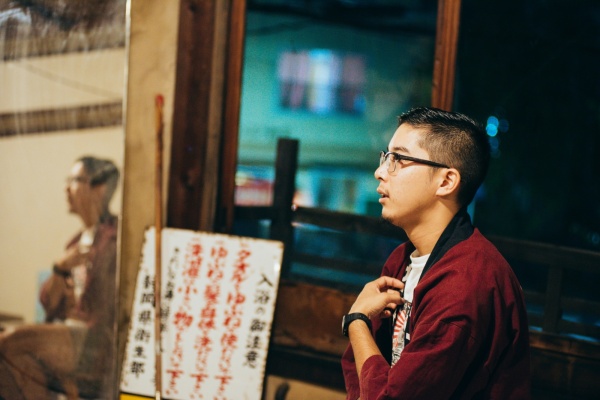
Interviewer:
Have your GetYu! associates also always been bathhouse enthusiasts?
Mr. Minato:
They have. GetYu! members Mr. Kawara and Suka-chan (Mr. Yokosuka) love bathhouses and frequent them. That’s why they wanted to create an event to spark a bathhouse movement among the youth. Mr. Kawara spoke to artists who love bathhouses, and after the first event, DJs, reggae artists, and skaters started speaking up about their love of bathhouses, and it spread from there.
Interviewer:
It seems like you’re leading a pack of people who love bathhouses but have never spoken up about it before.
Mr. Minato:
Before now, I don’t think anyone found it necessary to talk about their love for bathhouses. In a way, you could probably say we changed the culture so people could speak up about it. It also seems like for better or for worse, bathhouses turned into something fashionable. When I was a student, I wanted to turn bathhouses into something fashionable. Just a few years ago, no one would be coming to bathhouses for interviews. At the time, stylish old house cafes were popular, and I thought bathhouses should be popular in the same way. That’s now become a reality, and it feels like going to the bathhouse is now a fashionable thing to do.
Interviewer:
GetYu! is run in cooperation with cafes, bars, and barbershops that you and your associates frequent and recommend. What criteria did you use to select these co-sponsors?
Mr. Minato:
We didn’t consider that we needed the shops that have name recognition, or which shops we wanted people to learn about. We just decided to introduce places that we actually frequent. Haircut Miya, who took part in our event, is a barbershop that I frequent that’s located in a place that’s never covered.
Interviewer:
You want people to know about places that you’re familiar with?
Mr. Minato:
There’s that, and I also wanted people to know about places that are unexpected in some way. I’m a bit of a fickle person, and when something becomes popular, I tire of it quickly. I’m a little bit put off by bathhouses right now. (Laughs) Deep down, I’m a little put off by Umeyu too, the way it’s been covered and the way it’s become this major thing. I’m a fan of lesser-known things that I can enjoy in secret. I like things that I can introduce to my friends to create a topic of conversation with those around me. That’s what I like about Haircut Miya. If Haircut Miya happened to become well-known, it wouldn’t make me happy.
In that sense, I’m getting bored of bathhouses. I want to find a completely different approach within the world of bathhouses so that I can enjoy something new again.
To be honest, I want to be able to walk into bathhouses casually like I did in my student years.
Interviewer:
Earlier you mentioned that you were an overthinker during your university years. Was there some culture in particular you were influenced by?
Mr. Minato:
Like many young men in university, I was really into philosophy and I worried endlessly, wondering what it meant to be me. I was self-satisfied and quite pleased with reading random philosophy books. I cringe when I look at the books on my old bookshelf. (Laughs) Among them, Yoshimichi Nakajima’s books had a big influence on me. I also read Amiel’s Journal over and over again.
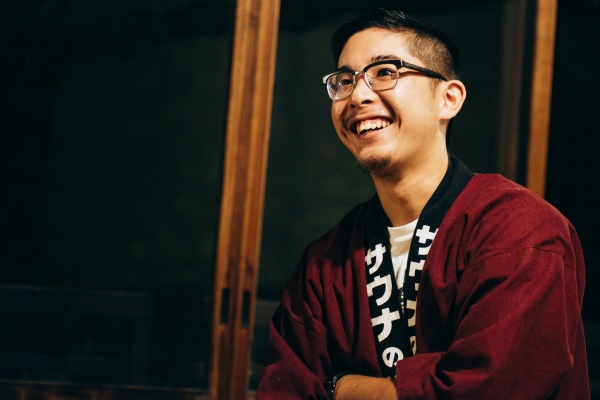
Interviewer:
What fascinated you about those books?
Mr. Minato:
Yoshimichi Nakajima’s writing may seem very contrarian when read at a glance, but he’s only speaking his mind. He writes about how he dislikes people who try too hard and how he disapproves of people who act positive all of the time. I was influenced by the way he can translate personal thoughts into words. Amiel’s Journal is the journal that the philosopher Amiel kept during his lifetime that was published and praised after his death. He wrote at length about his doubts and his inner conflicts from day to day, and I used to compare his experiences to my own. He was someone who hid his inner passion and never gave up on his dreams. I still read it when I feel weak. It gives me motivation.
Interviewer:
I think I’m beginning to understand why you attract so many people. You say that you do what you do for yourself, and not for others. Without thinking, people tend to say that they do things for others for appearance’s sake, but the fact that you don’t makes it easy to trust you.
Mr. Minato:
As Yoshimichi Nakajima said, people who say they do things for others are lying. For example, if you buy a present for your child, you are doing that for yourself. You do it because there is a part of you that would be unsatisfied or unforgiving if you didn’t. In the end, it’s all for yourself. I believe this to be the way things are. When it comes to the bathhouse, I do it because of the motivation from being able to enter the baths myself. Of course, I do feel that I want others to use the baths, too. To tell you the truth, right now, I want to be able to casually enter a bathhouse like I did when I was a student, without being concerned about the future of bathhouses. (Laughs)
Interviewer:
Having heard you speak, I feel like I want to start frequenting bathhouses when I can now. Everyone in Kyoto has their preferred bathhouse. I used to go to mine once a week, but I feel like I want to go more frequently now.
Mr. Minato:
That would make me happy. Rather than someone telling me they went to Umeyu, it actually brings me more joy to hear that someone went to some other bathhouses, or that they started going to bathhouses three times a week. That’s why I’m running Umeyu, after all.
Interviewer:
In other words, all you want Umeyu to do is to spark interest in bathhouses.
Mr. Minato:
That’s right. I want Umeyu to serve as an introduction to bathhouse culture. It’s better if people start frequenting other bathhouses after learning about Umeyu and spend their money there. I want as many bathhouses as possible to survive.
Interviewer:
Thank you for your time!
| Directions | 174 Iwatakicho Shimogyo-ku, Kyoto-shi, Kyoto-fu 600-8115 |
| Website | https://x.com/umeyu_rakuen |

